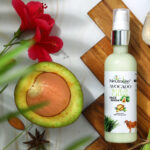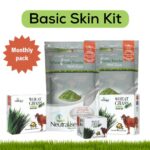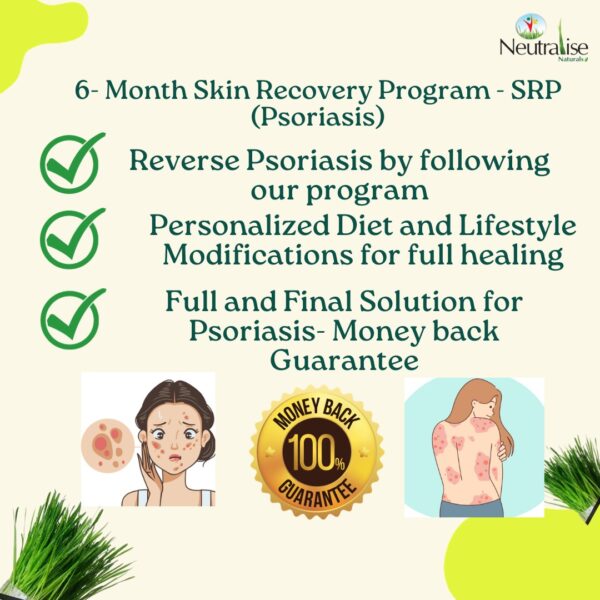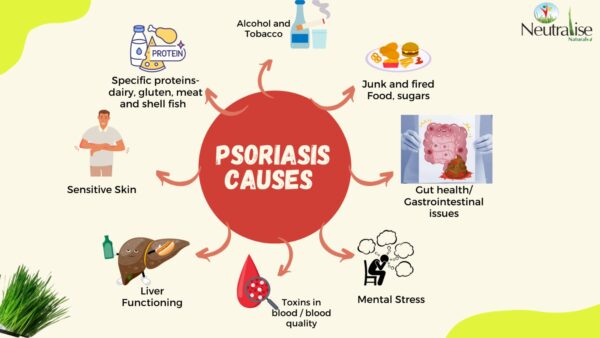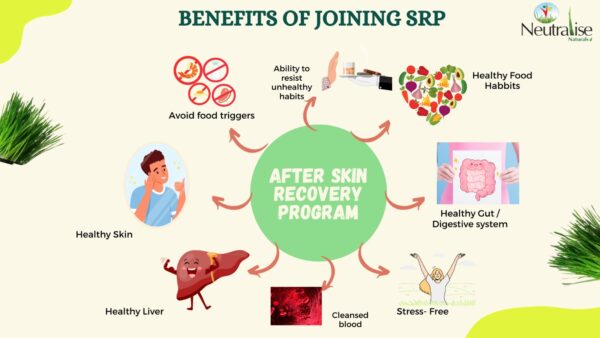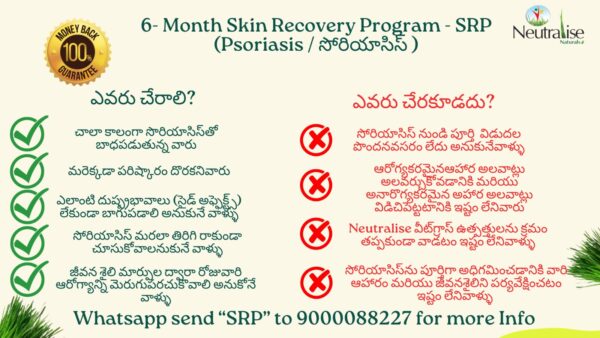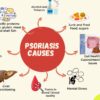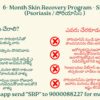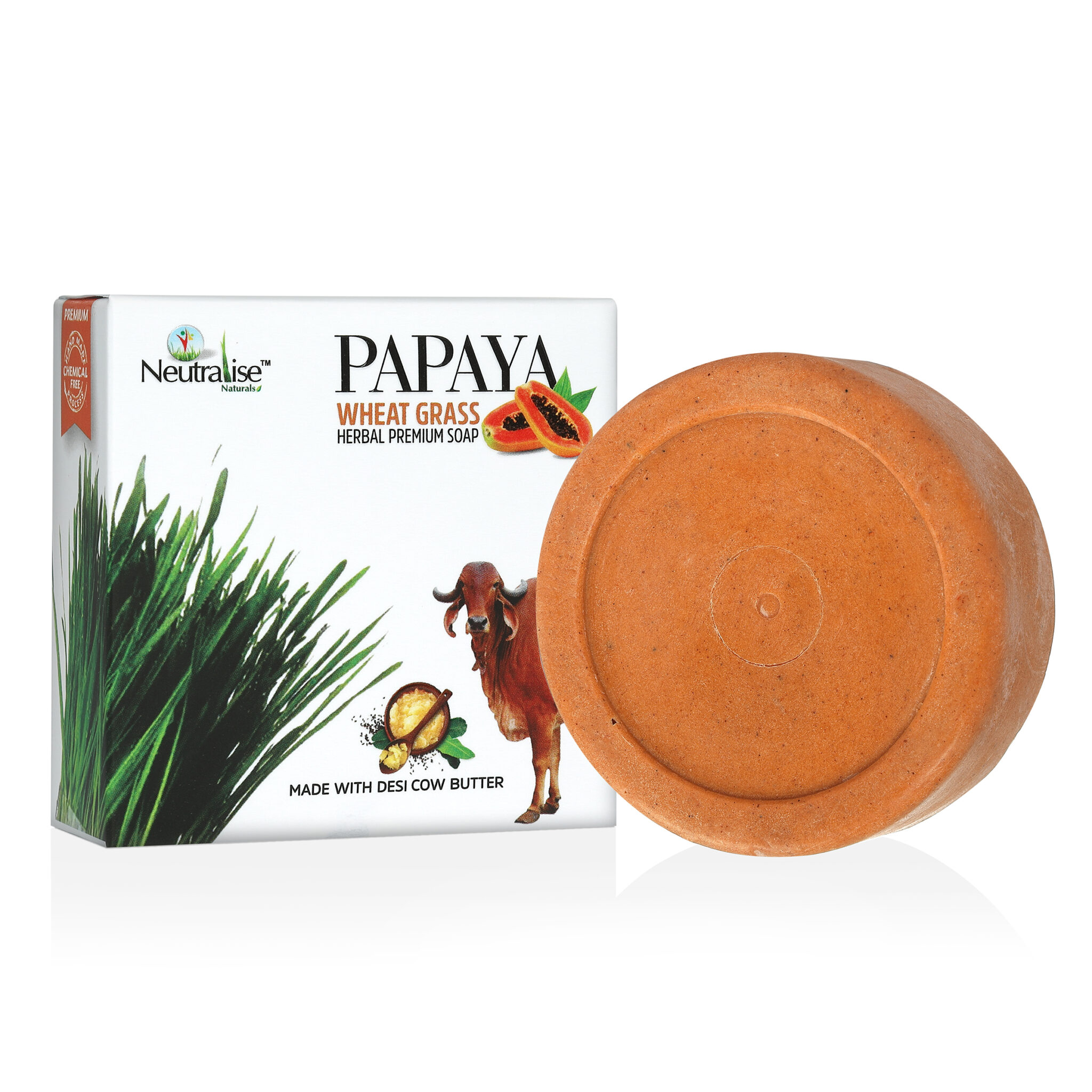Description
A skin recovery program using natural remedies can be a holistic approach to rejuvenate and heal the skin. Incorporating natural ingredients such as wheatgrass powder can provide a range of benefits due to their rich nutrient profiles. Below is a detailed description of a skin recovery program that leverages the benefits of wheatgrass powder and other natural remedies. Natural remedies for skin recovery involve using plant-based ingredients and lifestyle practices that support the skin’s natural healing processes. These remedies are often gentler on the skin and free from harsh chemicals found in many commercial skincare products.
Wheatgrass powder is derived from the young shoots of the wheat plant. It is packed with vitamins, minerals, amino acids, and antioxidants.
Key benefits for the skin include
Detoxification: Wheatgrass helps cleanse the body, which can lead to clearer skin.
Antioxidant Properties: It combats free radicals, reducing signs of aging and protecting skin cells
Nutrient-Rich: Contains vitamins A, C, and E, which are crucial for skin health.
Anti-Inflammatory: Reduces inflammation, helping to soothe irritated skin conditions like acne . Psoriasis and eczema.
A skin recovery program with the support of a health coach include comprehensive features that address both internal and external factors affecting skin health. The hand-holding approach ensures personalized guidance, continuous support and motivation to achieve optimal skin health. Here are the key features and the role of a health coach in such a program
Features of a Skin Recovery Program
1. Personalized Skin Assessment
a) Initial Consultation: A thorough assessment of the individual’s skin type, concerns, and goals.
b) Analysis: Use of tools or techniques to analyze skin health, such as hydration levels, elasticity, and any underlying conditions.
2. Customized Skincare Regimen
a) Daily Routine: Tailored recommendations for cleansing, moisturizing, and protecting the skin based on the individual’s skin type.
b) Weekly Treatments: Suggestions for exfoliation, masks, and other treatments that address specific skin issues.
c) Product Recommendations: Guidance on natural and safe skincare products that suit the individual’s skin.
3. Nutritional Guidance
a) Dietary Plan: A nutrition plan that includes foods rich in vitamins, minerals, and antioxidants beneficial for skin health.
b) Supplement Advice: Recommendations for natural supplements, such as wheatgrass powder, to support skin health from within.
c) Hydration Tips: Strategies to maintain adequate hydration levels for healthy skin.
4. Lifestyle Modifications
a) Stress Management: Techniques such as meditation, yoga, or deep breathing exercises to reduce stress, which can impact skin health.
b) Sleep Hygiene: Recommendations for improving sleep quality to support skin regeneration.
c) Exercise Routine: Advice on physical activities that promote overall well-being and skin health.
5. Monitoring and Adjustments
a) Regular Check-ins: Scheduled follow-up sessions to monitor progress and make necessary adjustments to the program.
b) Progress Tracking: Tools or journals to record changes in skin condition and overall health.
Hand-Holding Approach Involving a Health Coach
1.Initial Engagement
a) Comprehensive Assessment: The health coach conducts a detailed assessment of the individual’s skin condition, lifestyle, and dietary habits.
b) Goal Setting: Collaborative setting of realistic and achievable skin health goals.
2.Personalized Guidance
a) Tailored Recommendations: The health coach provides personalized advice and guidelines based on the individual’s unique needs.
b) Action Plan: Development of a step-by-step action plan that outlines daily, weekly, and monthly activities for skin recovery.
3.Continuous Support
a) Regular Communication: Ongoing support through regular meetings, phone calls, or messaging to address any concerns or questions.
b) Motivation and Encouragement: The coach provides continuous motivation and encouragement to keep the individual on track.
4.Education and Empowerment
a) Information Sharing: The health coach educates the individual about skin health, the importance of nutrition, and effective skincare practices.
b) Skill Development: Teaching the individual how to properly apply skincare products, prepare nutritious meals, and manage stress effectively.
5.Accountability and Feedback
a) Progress Tracking: The coach helps track the individual’s progress and provides feedback on what’s working and what needs adjustment.
b) Accountability: Regular check-ins to ensure the individual is adhering to the plan and making necessary changes.
6.Flexibility and Adaptation
a) Adjustments: The coach makes timely adjustments to the program based on the individual’s progress and any changes in their skin condition or lifestyle.
b) Personalized Solutions: Offering alternative solutions and strategies if certain aspects of the program are not yielding the desired results.
7.Long-Term Strategy
a) Sustainability: The health coach helps develop sustainable habits and practices that the individual can maintain beyond the duration of the program.
b) Maintenance Plan: A long-term plan to ensure ongoing skin health and prevent future issues.
By incorporating these features and Wheatgrass Powder and topical applications, a supportive hand-holding approach with a health coach, a skin recovery program can effectively address various skin concerns, promote overall well-being, and empower individuals to take control of their skin health.
